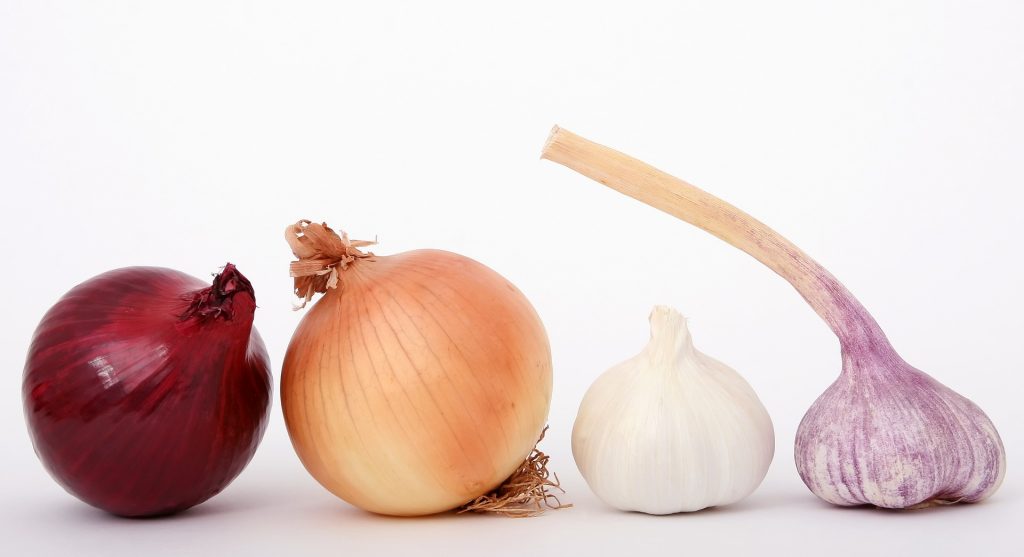 Anxiety and depression are debilitating mental disorders that affect a great number of individuals. Because of the widespread prevalence of mood disorders many choose to use herbal treatments or foods to help treat their disorder. This strategy makes sense because a large proportions of allopathic medical treatments are in turn derived from plant extracts or derivatives of these extracts. Vegetables of the Allium (garlic) family appear to have particular mood elevating effects. In this regard shallots (Allium ascalonicum) have been investigated for their ability to improve the mood of mammals. For example, in one study, researcher investigated the effects of aerial parts of shallot plants (also called spring onions) on the mood of mice. Mice were administered either diazepam or shallot extracts and the animals were then exposed to experimental stress to induce mood changes. The results of the study showed that the shallot extracts significantly reduced the symptoms of anxiety experienced by the animals.
Anxiety and depression are debilitating mental disorders that affect a great number of individuals. Because of the widespread prevalence of mood disorders many choose to use herbal treatments or foods to help treat their disorder. This strategy makes sense because a large proportions of allopathic medical treatments are in turn derived from plant extracts or derivatives of these extracts. Vegetables of the Allium (garlic) family appear to have particular mood elevating effects. In this regard shallots (Allium ascalonicum) have been investigated for their ability to improve the mood of mammals. For example, in one study, researcher investigated the effects of aerial parts of shallot plants (also called spring onions) on the mood of mice. Mice were administered either diazepam or shallot extracts and the animals were then exposed to experimental stress to induce mood changes. The results of the study showed that the shallot extracts significantly reduced the symptoms of anxiety experienced by the animals.

Allium vegetables contain a large number of phytochemicals that may explain their mood elevating properties. However it is not clear which phytochemicals are responsible for these effects. Analysis of the aerial parts of shallots showed that they contain alkaloids, tannins, glycosides, anthraquinones, phlobatannins and flavonoids. Both garlic and onions possess similar phytochemical profiles to other allium vegetables, including shallots.
As might be expected for a food, the administration of shallots to the mice orally produced no notable toxicity symptoms. Interestingly the shallot extracts showed similar effects to diazepam in a number of the experimental tests. As diazepam is the treatment of choice for anxiety problems, this suggests that shallots may be a useful alternative to this and similar drugs in the benzodiazepine class. However, other allium vegetables also seem to possess mood elevating effects and this may relates to the fact that the phytochemicals in allium vegetables are similar. For example, in one study, researchers investigated the effects of oral garlic (Allium Sativum) extracts on the mood of mice exposed to experimental stress. After 14 days of consuming garlic extracts the mice experienced significantly less depressive behaviour indicating the extracts may have had an antidepressant effect. Evidence suggests that the extracts inhibited the monoamine oxidase enzymes, thus raising levels of brain monoamine neurotransmitters.
Eat Well, Stay Healthy, Protect Yourself
RdB
